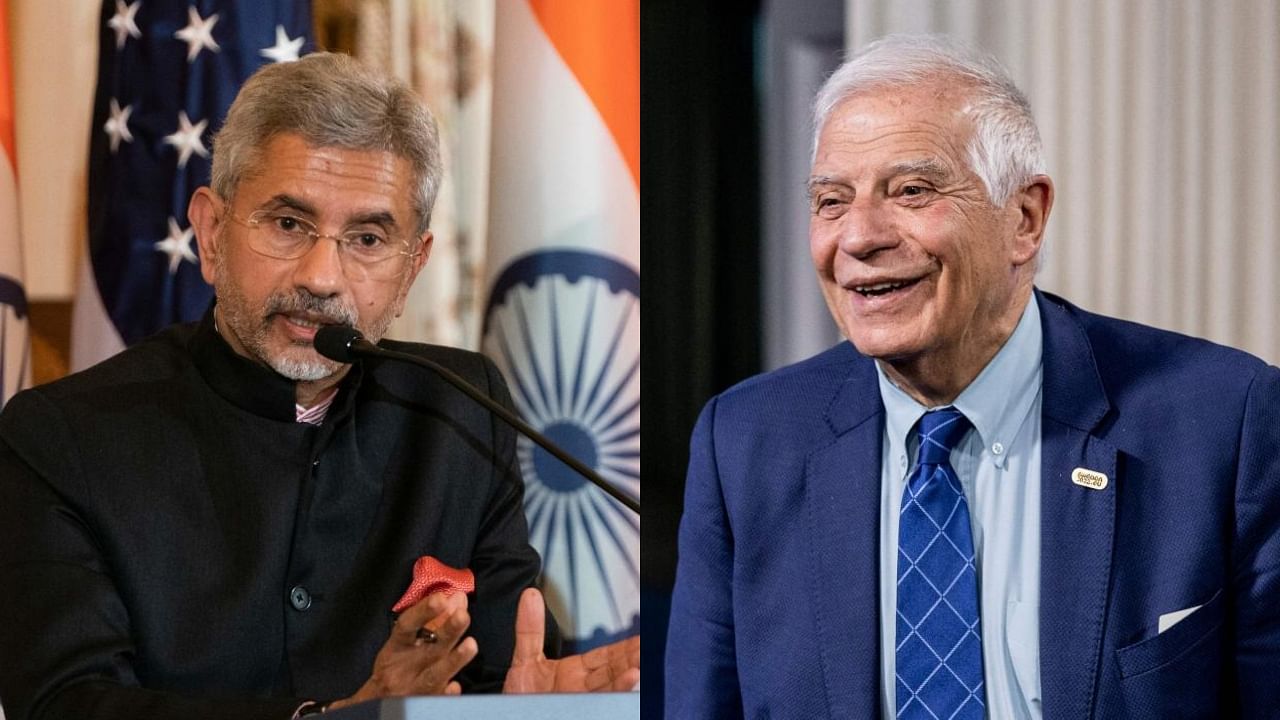
The 15th European Union-India Summit in 2020 adopted a visionary document titled ‘EU-India Strategic Partnership: A Roadmap to 2025’ to guide joint action and further strengthen ties over the next five years. India was represented by Prime Minister Narendra Modi.
Curiously, the first ministerial level meeting in Brussels on May 16 to follow up that document and discuss ways to increase co-operation in strategic technologies, digital connectivity, clean energy, trade and investments, et al, has had an unhappy ending, underscoring how much European mindset has changed lately.
The Brussels meeting was meant to be a defining moment in ‘strategic partnership’, but ended on a sour note as the EU co-chair, the group’s foreign policy chief, Josep Borrell, skipped a joint press conference with the three visiting senior Indian ministers. Such happenings in international diplomacy usually signal that all is not well in paradise.
Apparently, differences cropped up at the meeting over India’s purchase of Russian oil at discounted price and exports of petroleum products to the European market. External Affairs Minister S Jaishankar was put on advance notice by Borrell who is known to be a politician with a colonial mindset — he recently described Europe as a garden that is threatened by the “jungle” (Global South) — when he resorted to megaphone diplomacy via an FT interview on the eve of the Brussels meeting that he’d raise with Jaishankar that “we (EU) will have to act” against India as it has turned into “a centre where Russian oil is being refined and by-products are being sold to us.”
Borrell isn’t bluffing. European Commission President Ursula von der Leyen herself had confirmed on May 9 that EU is in the process of preparing a new sanctions regime that, for the first time, will include transition to the so-called extraterritorial, or secondary sanctions, such as those that, so far, have only been imposed by the United States.
Indeed, this is a major policy reversal, since the EU has traditionally held the view officially that extraterritorial or secondary sanctions will be in violation of international law. This is happening against the backdrop of a colossal failure of the existing 10 EU sanctions packages against Russia to achieve the desired success — Russian economy’s ruin!
The EU bureaucracy in Brussels is notorious for its trans-Atlanticism and criticism is mounting in some European capitals that the group’s much-vaunted ‘sanctions from hell’ against Moscow not only failed — the IMF has forecast Russian economy’s growth rebound — but the blowback brought European economies down on their knees.
The EU bureaucrats who acted as per the diktat of the Biden administration feel the heat like cats on a hot tin roof as the proxy war in Ukraine is heading toward a calamitous ending, and are looking for scapegoats. Jaishankar’s curt rejoinder that targeting refined fuel exports would mark a significant step-change in the West’s sanctions regime won’t fly. The draft for the 11th package of anti-Russian sanctions already lists enterprises from various third countries, against which the EU will impose punitive measures, including companies in the economically and politically weaker countries in South Caucasus or Central Asia and even eight Chinese enterprises.
In fact, China’s Foreign Minister Qin Gang reiterated on May 9 in Berlin that Beijing would “react strongly to EU sanctions, to defend the legitimate interests of our country and our enterprises.” Counter-sanctions could be expected. Two enterprises from the United Arab Emirates too are on the list, and the listing of Turkish companies is in discussion. Whether Abu Dhabi and Ankara will impose counter-sanctions remains at least open.
The unkindest cut of all is that Modi is also likely to come under pressure from the G7 leaders at the summit in Japan (May 19-21). India was joyfully looking forward to the event as a milestone in the G7 countering China’s alleged ‘economic coercion’, but is instead getting a taste of the same medicine — albeit a stellar QUAD member.
With the Ukraine war possibly escalating into a continental war, crunch time has come. India is being sternly told to stand up and be counted — although what India is doing is nothing compared to what ConocoPhillips, ExxonMobil, etc. are doing by replacing Russian energy supplies and making killing profits. Profits doubled at ExxonMobil, quadrupled at Chevron, increased nearly six-fold at ConocoPhillips. India reportedly gained by $5bn, whereas ConocoPhillips doubled its net income to $18.7bn last year. Hungary’s Prime Minister Viktor Orban called out Big Oil for “war profiteering”. The EU briefly toyed with the idea of imposing a ‘profit tax’ on Big Oil, but retracted fearing US retribution.
(M K Bhadrakumar is a former diplomat.)
Disclaimer: The views expressed above are the author's own. They do not necessarily reflect the views of DH.